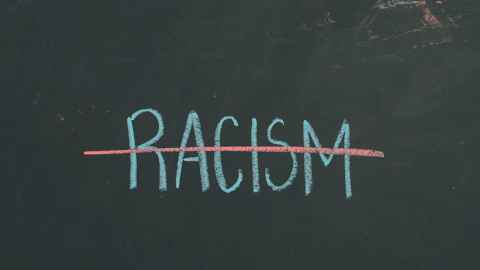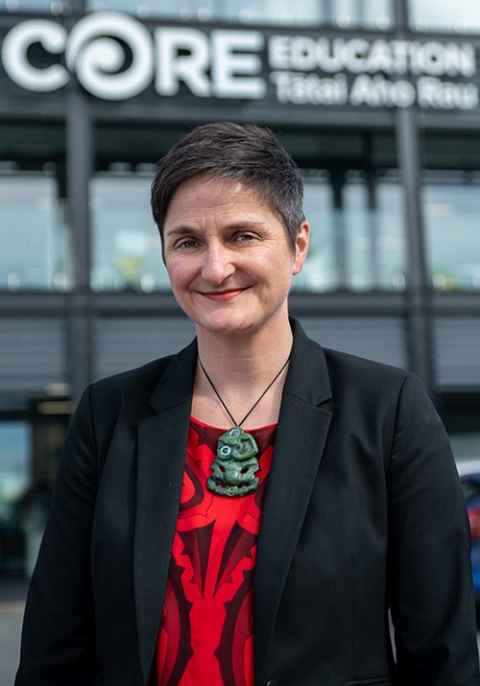The danger of an untold story: refuting racism in education
29 September 2022
Guest speaker Dr Hana O’Regan has laid down a challenge to educators to actively refute negative stereotypes that are still holding Māori back.

“If you only knew what they only know, you’d probably think the same."
In a recent intra-faculty kōrero at the University of Auckland’s Faculty of Education and Social Work, Māori language advocate and academic Dr Hana O’Regan quoted her father Sir Tipene O’Regan’s measured response to a racist incident directed at them in the mid-1990s.
She used it as challenge to educators and students to “actively question what we know, what we don’t know and what we’ve been told,” specifically in the field of Māori achievement and commonly held negative stereotypes.
“Inequities have to actively be called out and identified. What students think you [teachers] think about them matters; it has a profound impact on expectations.”
She said she knew from an early age that “being Māori was going to give me difficulties,” and despite some encouraging recent progress in the form of strong public support for te reo and a refreshed Aotearoa history curriculum, there is still a long way to go.
And educators have a strong role to play in preparing teachers and social workers to challenge long-held beliefs about equity in schools, she said.
“In other areas, like health and the media (‘I cried when I read the Stuff apology in 2020’) we’ve admitted we have structural racism, but not in education.”

She used the example of a retired school principal, who in response to a story in the Herald where Dr O’ Regan was quoted, rejected the implication that “in all her 37 years of teaching in lower decile schools” she might have, albeit unwittingly, perpetuated a system that was inherently unfair to Māori.
Dr O’ Regan encouraged educators to be brave in the face of ignorance and equip themselves with the tools to know “what good looks like, and to have belief in potential”.
She ran through some of the historical reasons Māori still find themselves in an inequitable position educationally, and cautioned against the “dangers of the untold story”.
“In Te Aute College [Napier] from the 1880s, for example, principal John Thornton believed Māori students could and should learn subjects like Latin, French and the classics, which were required for university entrance back then, as well as careers in areas like law and medicine.
“And as a result, you started to see these educated men like Sir Peter Buck, Dr Māui Pōmare and Sir Āpirana Ngata coming through.”
We need to stop streaming Māori students. We need culturally responsive teachers who have high expectations for their students.
However, she says an amendment to the Education Act prevented the teaching of academic subjects in Native Schools to stop the tide of Māori entering the learned professions, and channelled them instead into vocational pathways and labouring.
“So they actively created an underclass, which is a pretty standard blueprint for colonisation, and then came deficit thinking and the blame for underachievement was put onto students and whānau.”
Other interesting and not widely known facts Dr O’Regan mentioned included the existence at one time of 47 Māori language newspapers featuring stories on everything from local news and issues to foreign affairs.
“Around 17,000 pages all in te reo, and they say Māori is not a scholarly language.”
Another area of oppression, especially for Māori students, has been streaming, she said.
This was a key finding of the He Awa Ara Rau report which was based on research into 100 rangatahi as they moved through education into employment.
“We need to stop streaming Māori students. We need culturally responsive teachers who have high expectations for their students. Think about how you model empathy, how you show you care. We have to challenge these perceptions.”
Dr Hana O’Regan is the Tumu Whakarae / Chief Executive Officer at CORE Education Tātai Aho Rau.
Media contact
Julianne Evans | Media adviser
M: 027 562 5868
E: julianne.evans@auckland.ac.nz